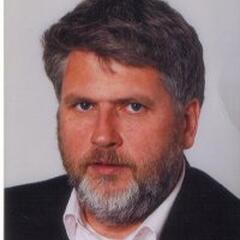The Dutch love affair with freedom
Direct Dutch Institute recommends speaking Dutch as often as possible - even if all your Dutch colleagues speak English, and even if you only know a few words of Dutch.
More than wealth, status and love, the Dutch love to be free... They hate authority and restrictive rules. You can witness their love for freedom on Koningsdag (April 27) when each street has its Vrijmarkt (street market) and on Bevrijdingsdag (May 5) when each Dutch city has its celebration.
The Netherlanders have regarded freedom as the highest good since time immemorial, long before the foundation of the republic. Ruud Hisgen explores this yearning for freedom by looking at seven related words or phrases.
› Zo vrij als een vogel (free as a bird)
With its four letters vrij is a small and unpretentious word. And yet, its sound is a pleasure to play around with. Try it. Let the sound fly from the valves of your lips to the depths of your throat and back.
Pronounce vrij several times after each other. It’s bound to put a smile on your face. No wonder... Vrij rhymes with blij (happy, blithe), another blissful four letter word. Vrij is related to the verb vrijen (to make love), the noun vriend (friend) and the noblest of all ideals: vrede (peace).
Vrij is a very old word, mentioned in the eighth century as a verb in the very first Dutch recorded phrase: "maltho thi: afrio lito", "ik zeg je: ik laat deze slaaf vrij" (I declare to you: I am setting this serf free). In Frankish law this was the official phrase to liberate a serf or slave.
› Vrij zijn (to be free)
Since 1996 Dutch singer Marco Borsato has been singing this popular song about a young girl who is not yet ready to tie herself because: "Vrij zijn, ze wil alleen maar vrij zijn" (To be free, all she wants is to be free).
Borsato repeats the word vrij 19 times in the song and people forget that the song is about a lover’s frustration, singing along as if it is a happy song about the longing for freedom. That’s probably why it is so popular during Liberation Day festivals.
› Vrijen met je vriendje of vriendinnetje (making love to your boy/girlfriend)
The word vriend, English "friend" and German Freund are clearly related. Their relationship goes back to the early Middle Ages when the word "friend" was spelled differently. In Old English it used to be spelled as frīond and in Old Dutch it was friunt.
The core of the word vriend is "free". In medieval times Dutch friunt could have the meaning of "friend" and "lover" and "to make love" in Dutch is the verb vrijen.
Great to see that the word for the person with whom one has a close and informal relationship of mutual trust and intimacy is based on "freedom".
A real friend will make you feel free. True friendship knows neither fetters nor impediments. Isn’t it wonderful that the contemporary word vriend still has the double meaning: "mate" and "lover"?
› Het doel van de staat is vrijheid (the goal of the state is freedom)
In the 17th century the great Dutch philosopher Spinoza wrote an influential political treatise in which he advocated a democratic society in which everyone’s opinion counts.
Only in a democratic society with reasoning citizens, he said, will we no longer be enemies: "The goal of the state is freedom". In 1848 the Dutch government followed up on this idea and framed a new Grondwet (ground law, constitution) to warrant a system of parliamentary democracy.
According to this Grondwet, the monarch (king or queen) cannot act in public without approval of the government.
Spinoza would have been happy to see that this constitution includes several basic rights that guarantee freedom: equality and prohibition of discrimination, the right to vote, freedom of religion, freedom of speech, freedom of education, freedom of demonstration, right to privacy, right to liberty and so on.
› Bevrijding (liberation)
This wonderful constitution was put in the icebox from May 15, 1940 until May 5, 1945 during which time the Nazis took away our liberty and occupied the Netherlands. The Dutch call the happy day of our liberation Bevrijdingsdag.
› Vrijmarkt op Koningsdag
Vrijmarkt is not what many people outside the Netherlands think it is (Vrij: free & markt: market) - a "free, uncontrolled trade market". Dutch Vrijmarkt is unparalleled in that it does not have exact equivalents in any other language.
A Dutch Vrijmarkt is an unregulated street market. All the stuff that you sell on the Vrijmarkt is free of taxes. It is a massive chaotic jumble for children of all ages. It is held every year on our national feast day Koningsdag (King’s Day).
Everyone can be Queen or King for one full day. We are all free to do and act as we like. We can sing on street corners, expose our artistic selves in public and sell what we like in the street.
› Vrede en recht (peace and justice)
The Oxford English Dictionary defines "peace" as "freedom from civil unrest or disorder". The roots of the Dutch word vrede can be found in the word fri meaning vrij (free).
The Hague with its Peace Palace, its tribunals and its International Criminal Court calls itself Internationale Stad van Vrede en Recht (International City of Peace and Justice). True or not, vrede can only be achieved when it goes hand in hand with vrijheid. When freedom is free for all.
Ruud Hisgen is managing director of the Direct Dutch Institute, one of the oldest language institutes in The Hague.
Want to better understand Dutch language and culture? Join one of their classes or their next free workshop Dutch up! about the war and Dutch Liberation Day on Sunday, May 1 at 1pm in the Central Library The Hague.


COMMENTS
Leave a comment